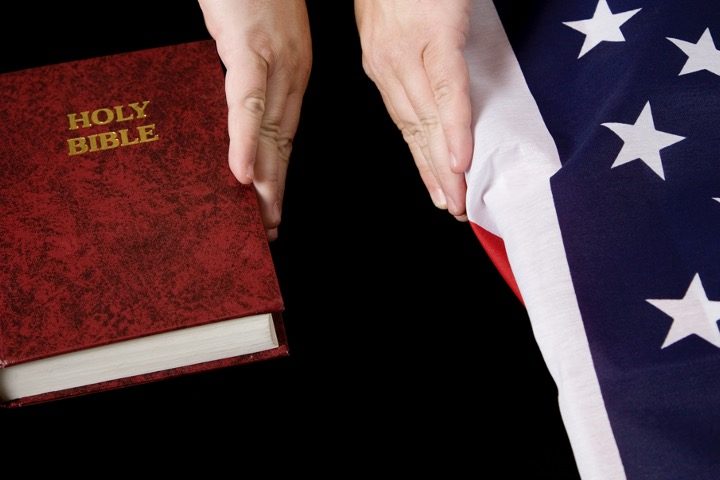
The ACLU (American Civil Liberties Union) joined with many of its closest ideological friends in sending a letter to state legislators last week. The letter said, “We are deeply opposed to any bill that would install chaplains in our public schools.”
Of course they are. The ACLU and its friends (including Americans United for Separation of Church and State, American Atheists, the American Humanist Association, the Feminist Majority Foundation, Gender Justice, the National Center for Transgender Equality, the National Education Association, People for the American Way, and the Transgender Legal Defense and Education Fund) remain committed to fighting the last war: the one declaring that the Establishment Clause, coupled with Thomas Jefferson’s private letter to the Danbury, Connecticut, Baptists in 1802, gave the government the right and the power to remove all vestiges of religion, particularly Christianity, from the culture.
State legislators were warned in the letter that allowing chaplains into public schools would likely provide “impermissible religious counseling and other promotion of religion” and that “students will [as a result] be vulnerable to religious indoctrination … [and] feel pressure to submit to religious proselytizing by chaplains or to join them in prayer.”
The ACLU and its friends urged “lawmakers to reject school-chaplain proposals and look for ways to better serve public school students that do not involve unconstitutional school-sponsored religion.”
Six days later the ACLJ (American Center for Law and Justice), founded in 1990 by evangelist Pat Robertson and which is “committed to ensuring the ongoing viability of freedom and liberty in the United States and around the world,” responded with a letter to those same state legislators.
It called out the ACLU and friends for continuing to promote the canard that the U.S. Constitution and its Bill of Rights “compel the government to purge from the public sphere anything an objective observer could reasonably infer endorses or partakes of the religious.”
The issue was settled in the landmark case Kennedy v. Bremerton School District (about which The New American has written here, here, and here). Kennedy was an enormous victory in the war against religion and Christianity because it obliterated the myth of the “wall of separation of church and state” that those opposed to Christianity have deliberately erected. That “wall” has been used to justify all manner of secular interference and intimidation over the right, guaranteed in the First Amendment, of citizens to enjoy worshipping as their consciences dictate without government interference.
Supreme Court Justice Neil Gorsuch made the point abundantly clear — so clear that the ACLU and friends couldn’t miss it — by stating in the majority opinion in Kennedy that “the free Exercise and Free Speech Clauses of the First Amendment protect an individual engaging in a personal religious observance from government reprisal; the Constitution neither mandates nor permits the government to suppress such religious expression.”
He obliterated the myth of the “wall”:
The only meaningful justification the government offered for its reprisal [against Coach Joe Kennedy] rested on a mistaken view that it had a duty to ferret out and suppress religious observances even as it allows comparable secular speech.
The ACLJ called out the ACLU and its friends by declaring that its letter of intimidation to state legislators was just plain wrong:
So long as a public-school chaplaincy program ensures that student participation is purely voluntary and takes measures to guarantee an absence of any coercion — and so long as no religious test is imposed on chaplains — there is nothing under current Establishment Clause jurisprudence that would forbid it outright.
For the ACLU and others to suggest otherwise is wrong.
It was also “misguided” in its attempt to intimidate:
The letter’s attempt to squash efforts at accommodating the religious beliefs and practices of students by way of a chaplaincy program is very much misguided. Religious neutrality does not demand the cleansing of the public sphere of all things related to religion.
Knowing that its response would eventually work its way back to the ACLU and its friends, attorneys for the ACLJ informed them that “Kennedy … has changed the framework for interpreting the Establishment Clause for the foreseeable future.… A school chaplaincy program is not inherently unconstitutional, as the ACLU’s open letter asserts.”
Related articles:
What’s Next for Coach Joe Kennedy?
High-school Football Coach Joe Kennedy Gets His Job Back
After Eight Years of Litigation, Coach Joe Kennedy Will Get His Job Back



